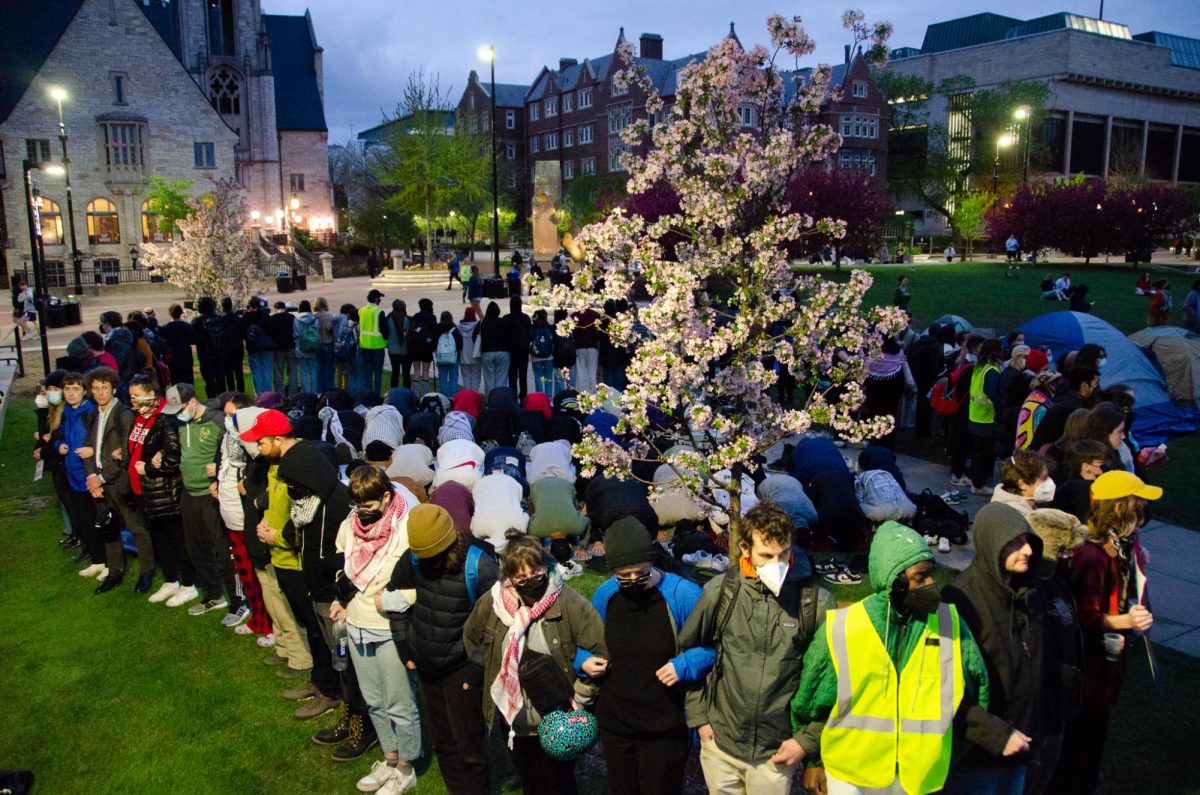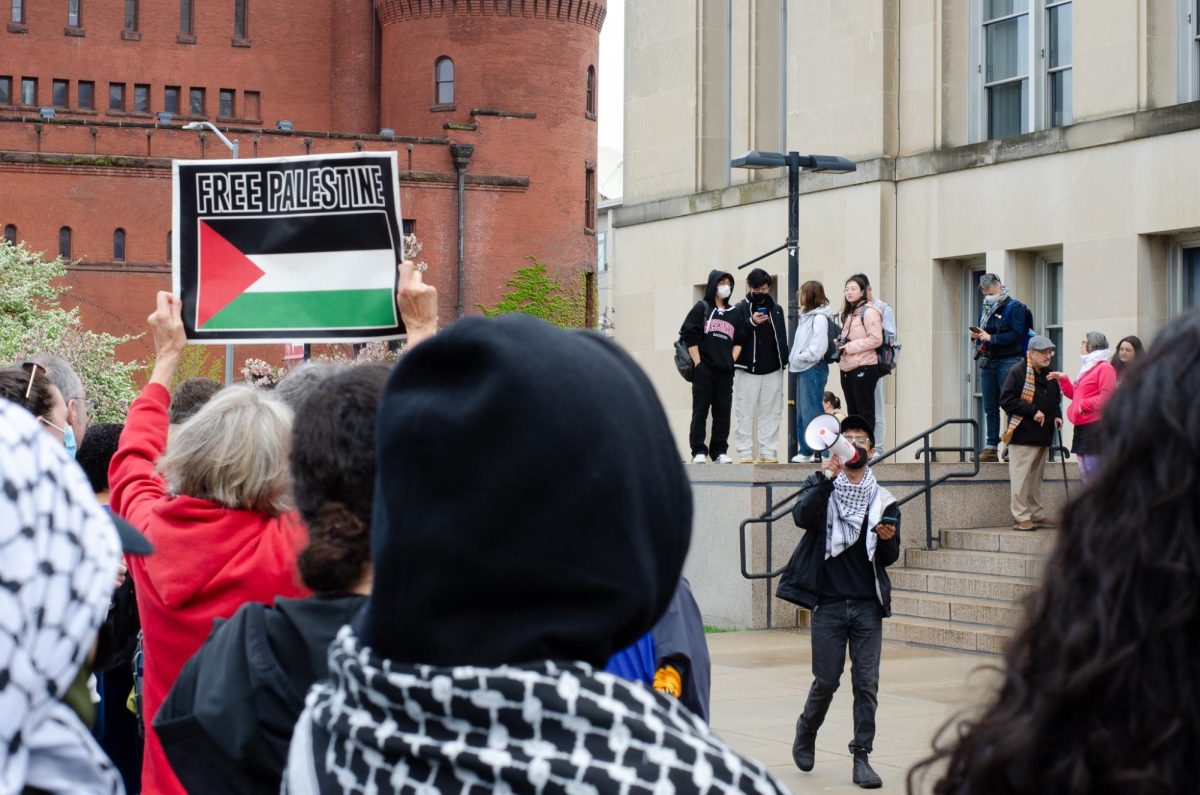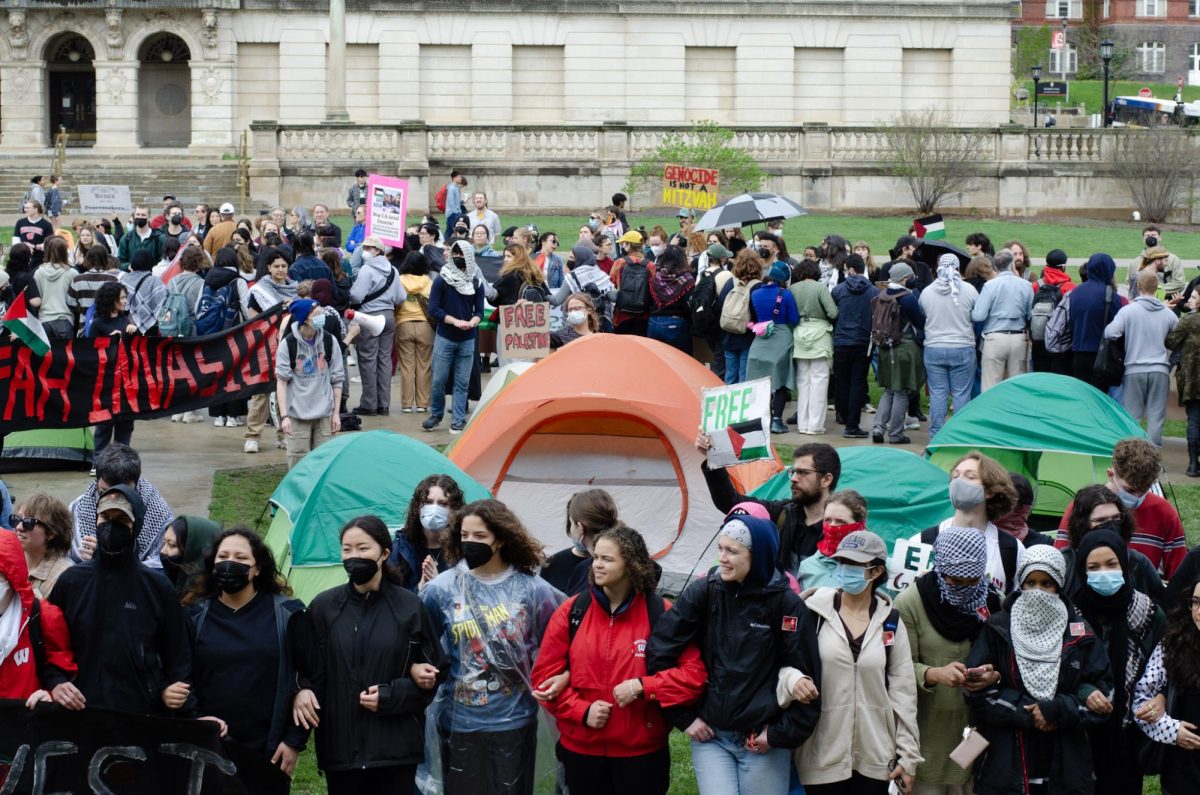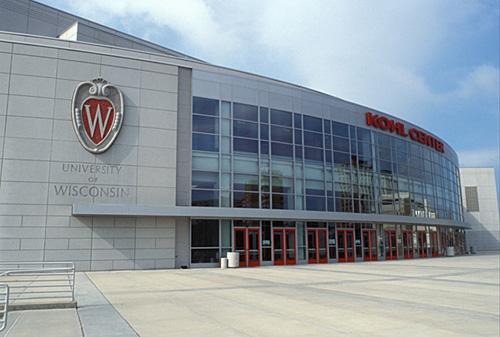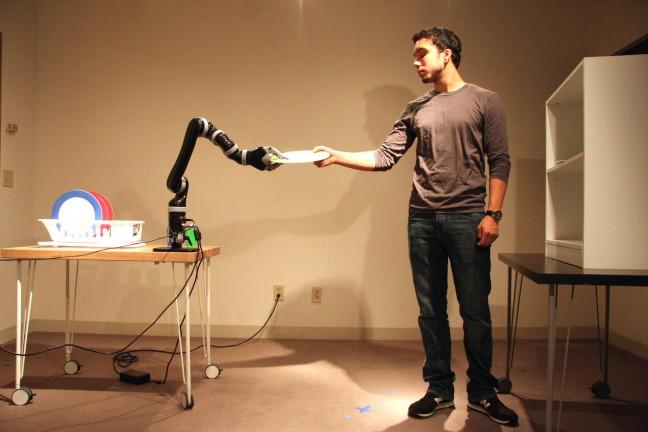A University of Wisconsin professor might have finally found an answer to the never-ending pile of dishes in the sink — a robotic arm.
Looking to design and improve machines that humans can work with intuitively, UW Professor Bilge Mutlu and his team have developed a robotic arm able to assist with dishwashing.
Mutlu first became interested in robots during the emergence of intelligent smart appliances while working in the household appliances industry.
Mutlu came to UW as an associate professor of computer science, psychology and industrial engineering in 2009 and currently directs the Wisconsin Human-Computer Interaction Laboratory.

He attended Carnegie Mellon University and received a master’s degree and Ph.D. from the Human-Computer Interaction Institute. There he began to work on how to enhance interactions between humans and robots.
“I was interested in intelligence interactive systems, so I decided to go back to grad school,” Mutlu said. “During my Ph.D. work I focused on robots as the central interface that would give you access to information or other functions.”
Through his research at UW, Mutlu found there were a variety of ways dishwashing could be performed, depending on the robot’s priority.
For example, Mutlu found when efficiency is the top priority, robots performed the task in a more aggressive manner. But with a more collaborative approach, the robot focused on taking its time and making sure its partner was ready for the next dish.
Mutlu was able to conduct his research with funding from UW, the National Science Foundation, Toyota and NASA.

Mutlu’s research goals focused partly on the possible applications of robots in everyday life.
“If we were to reconstruct the way of doing things, but with a robot, what would that look like?” Mutlu said when discussing the goals of his research.
Mutlu explained his research as exploring a fundamental aspect of the research question: “How do I create the interactions between these types of machines and people in a way that people can effectively do what they want to do with them?”
Using a method called “machine learning,” Mutlu said the robots were able to observe repeated examples of humans performing certain actions before using an algorithm that allows the machines to learn and adapt its behavior while working.
For the future, Mutlu said he and his team are looking to get involved with various new projects. Finding a place in the manufacturing industry is an area of interest, as Mutlu is looking for the best way to integrate a robot into an assembly line.
Mutlu said he’s also looking to work with autonomous driving. With parallels between how humans interact with robots and cars, Mutlu also observed how cars respond to humans is similar to a robot’s response. This knowledge will help him understand the problems and solutions that could come with his research.
“Over the last couple decades, technology has matured enough to enable these autonomous systems to become a reality,” Mutlu said. “Now that they are valuable systems, it’s time to design them and bring them into society.”



